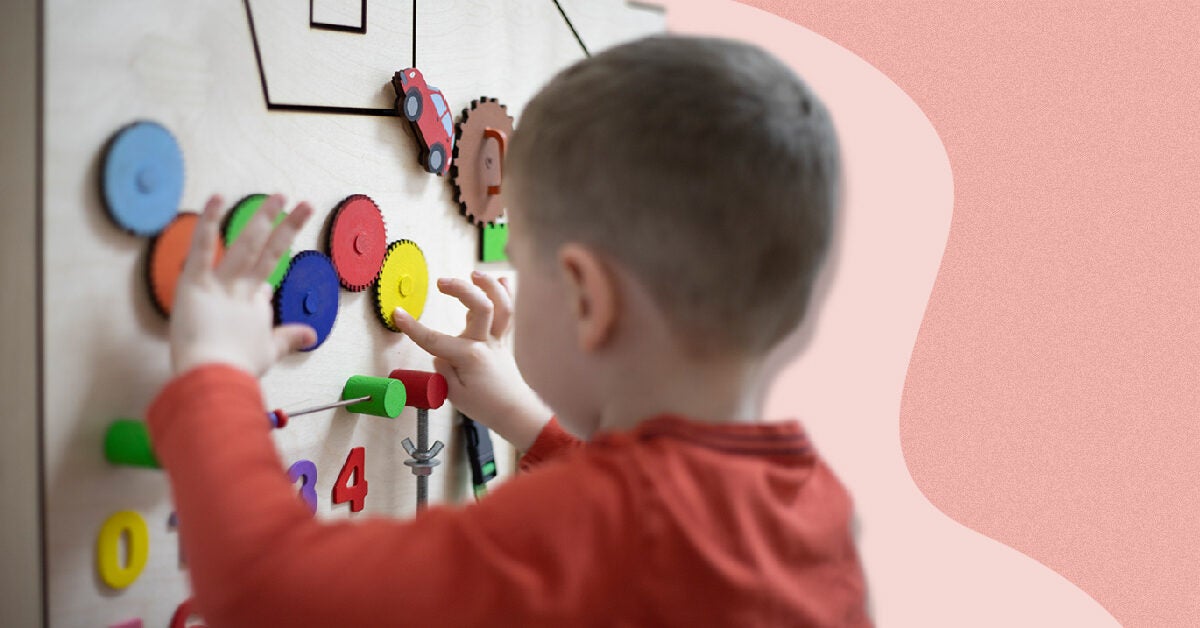Some Ideas on fidgets You Need To Know
Table of ContentsGetting My SENSORY HOMEWARES To WorkThe Ultimate Guide To special needs homewaresThe 30-Second Trick For Sensory toys
Signs and symptoms of oral-motor and oral-sensory issues Signs and symptoms of a motor issue can include: Delayed advance of appearances since the youngster can't literally take care of chewing solid foods Slow or inefficient eating Food left in the mouth Food dropping from the mouth Gagging Coughing or choking Low consumption of food (the youngster might not consume enough calories due to the fact that it takes as long to eat) Postponed advancement of various other feeding landmarks (such as transitioning to a normal open cup from a sippy cup) Signs of a sensory problem might consist of: Gagging Rejection to eat Weeping during dish times Throwing up Postponed consuming milestones (the kid might be able to tolerate fluids as well as purees however have difficulty with chewable foods, or the other way around) Uncommon preference choices (such as salsa on eggs) Food dropping from the mouth Risk of creating this problem Kid who were birthed incredibly premature; who have GI, breathing or neurological problems; or that have hereditary syndromes may be a lot more likely to establish oral-motor and/or oral-sensory issues.Kids with oral-motor issues may have difficulty swallowing securely and also can be at threat for desire and also choking. Medical diagnosis and also evaluation of oral-motor and also oral-sensory issues An extensive clinical history is vital: It is very important for your child's clinical group to comprehend exactly how feeding has gone since birth to recognize where the issue started.
If there's a behavioral part to your kid's feeding concern, the treatment plan could consist of cognitive behavior modification. Whatever approach we take, our goal is to make certain your youngster can eat securely and also effectively - Full Report. After therapy Treatment size depends upon the trouble as well as your youngster's age and ability level.

4 Simple Techniques For special needs homewares
What is sensory processing disorder? Sensory processing disorder is an inequality between the sensory stimulations of the setting as well as the brain's response to that stimulations - special needs homewares. A kid with sensory handling condition may have a tough time processing and acting on the information they obtain from their detects, resulting in challenges with day-to-day tasks.
Without proper therapy, the condition might cause depression and also hop over to here stress and anxiety. What are sensory handling disorder signs and symptoms? Sensory processing problem signs differ substantially. It can present as a child being worried of loud noises, rejecting to touch certain structures, or otherwise feeling any kind of pain. Various other symptoms that may show sensory processing condition consist of: Extreme mood swings, Clumsiness, Required for consistent motion, Over or under-sensitive to outside stimulations, Conscious loud noises, The kid is intense, demanding, or tough to calm, Problem going to sleep, Difficulty focusing, Slow to find out brand-new abilities, Sensory handling disorder may impact among the senses (touch, sight, noise) or several senses, as well as the symptoms they create are chronic and also impact day-to-day life.

To find out more about therapy at Solaris Pediatric Therapy, call the office or request an appointment online today.
What Does SENSORY HOMEWARES Do?
A few youngsters are touchy-feely to the extreme as well as these children may have sensory handling problems. Trouble managing certain sensations is the characteristic of sensory processing concerns, and it can expose itself in several methods, such as a marching band going by (noise) or shirt's itchy tag (touch).
What are sensory handling issues? Sensory processing describes the way in which a youngster reacts to what he really feels, tastes, smells, sees or listens to (fidgets). Examples of sensory problems consist of not being able to stand specific appearances versus one's skin, getting distressed when a siren screams by or avoiding hugs (see here).
On the opposite end of the spectrum are kids that have an under-sensitivity, or the hyposensitive tyoe of sensory issues (SENSORY HOMEWARES). These kids are uncommonly detached to sensations and some may appear to be deprived for stimulation, continuously requiring to touch, sniff and taste well outside the realm of proper or regular expedition.
Below's a sampling of some signs to search for: May hate being touched (if they're excessively sensitive) or seem incapable to resist touching every little thing (if they're under-sensitive)May find it unbearable to wear clothes with tags or rough fabrics if they're very sensitive to touch, or seem insensitive to pain, severe warmth or cold as a result of an under-sensitivity to stimulations, May rotate around regularly or have difficulty harmonizing, Can be perturbed and also overstimulated by loud audios and also intense lights, May show severe food aversions (beyond hating broccoli)May be overly afraid of swings and various other playground apparatus May be deeply interrupted by dirt on their hands or faces, Can need too much aid to drop asleep (assume hours of rocking and unique sound makers)Regularly head knocking, May have difficulty being gentle with animals, May often touch things and individuals, or otherwise comprehend personal space when various other youngsters do, May have an extremely high tolerance for discomfort, May act extremely fidgety or be not able to sit still, May hunger for quick rotating, tough hugs, or love being thrown in the air or getting on furnishings, What causes sensory processing concerns in kids? While the exact reasons are unknown, it's assumed that a mix of genetic and ecological aspects may add to sensory processing concerns.